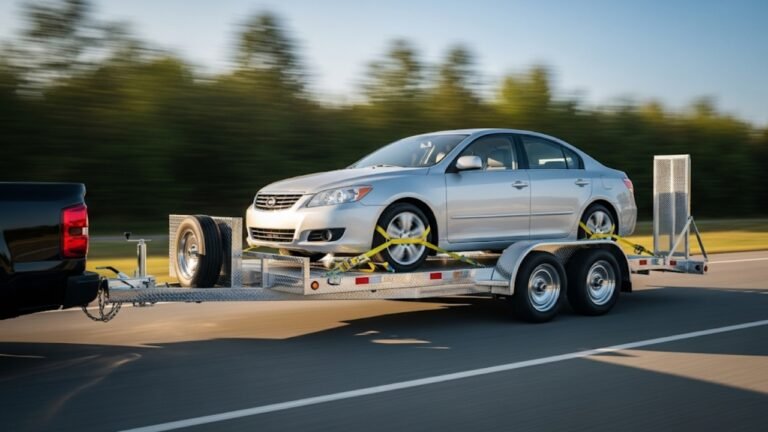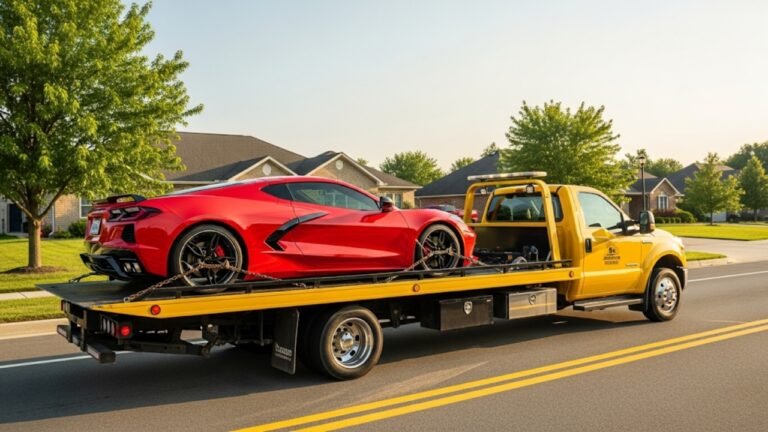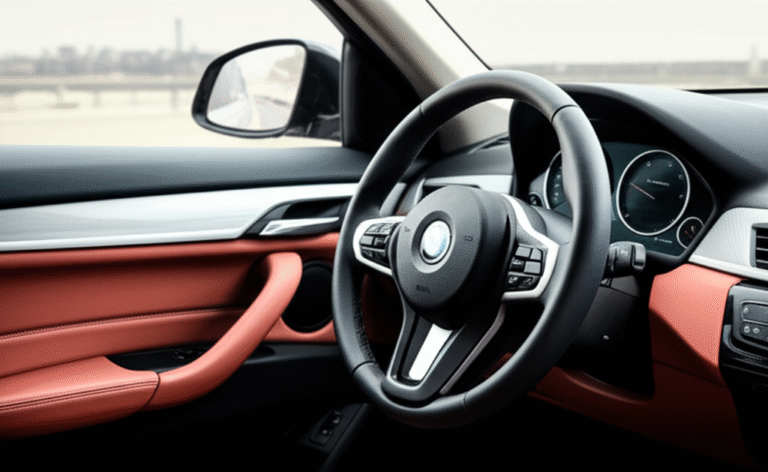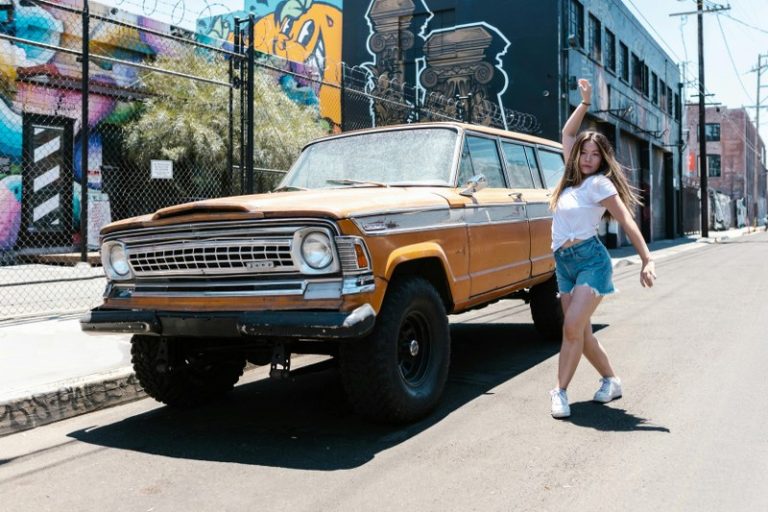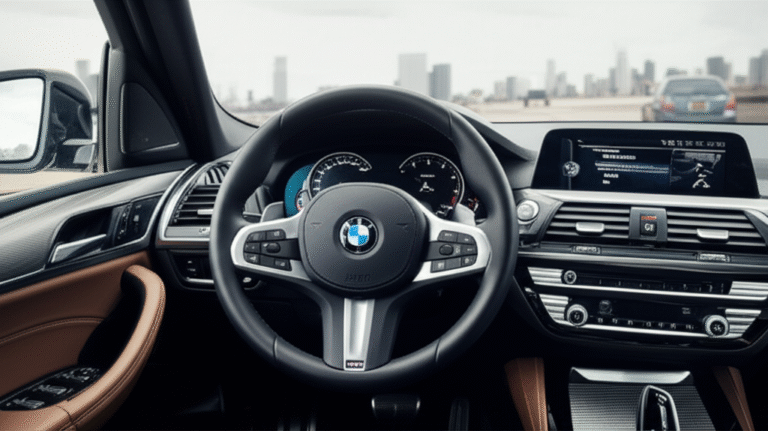Here’s Exactly Where to Make a Copy of a Car Key
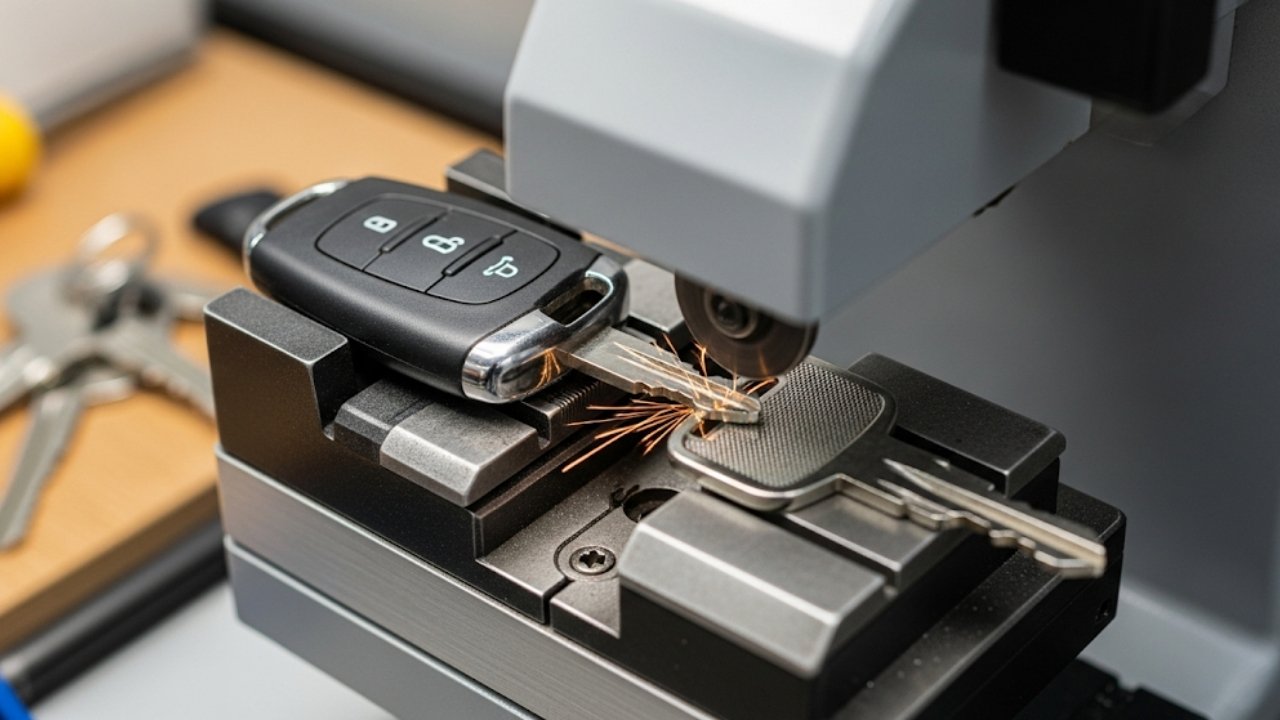
It’s happened to the best of us. You’re rushing out the door, juggling a coffee cup and your phone, only to discover your car key is missing. Maybe it fell between the couch cushions, got locked in the trunk, or worse — vanished completely. That sinking feeling in your stomach? We’ve all felt it. Whether you’ve lost your only key or just want a spare to avoid disaster later, the first question most people ask is: Where to make a copy of a car key?
This question isn’t as straightforward as copying a house key at the corner hardware store. Car keys have evolved — from simple mechanical designs to transponder chips, remotes, and even keyless fobs. Each type needs a different approach and place to duplicate. But don’t worry — I’ll walk you through everything you need to know, like a friend who’s been through it all and learned the hard way.
Let’s dive in and save your future self some panic.
1. Understanding the Types of Car Keys: Why It Matters Before You Copy
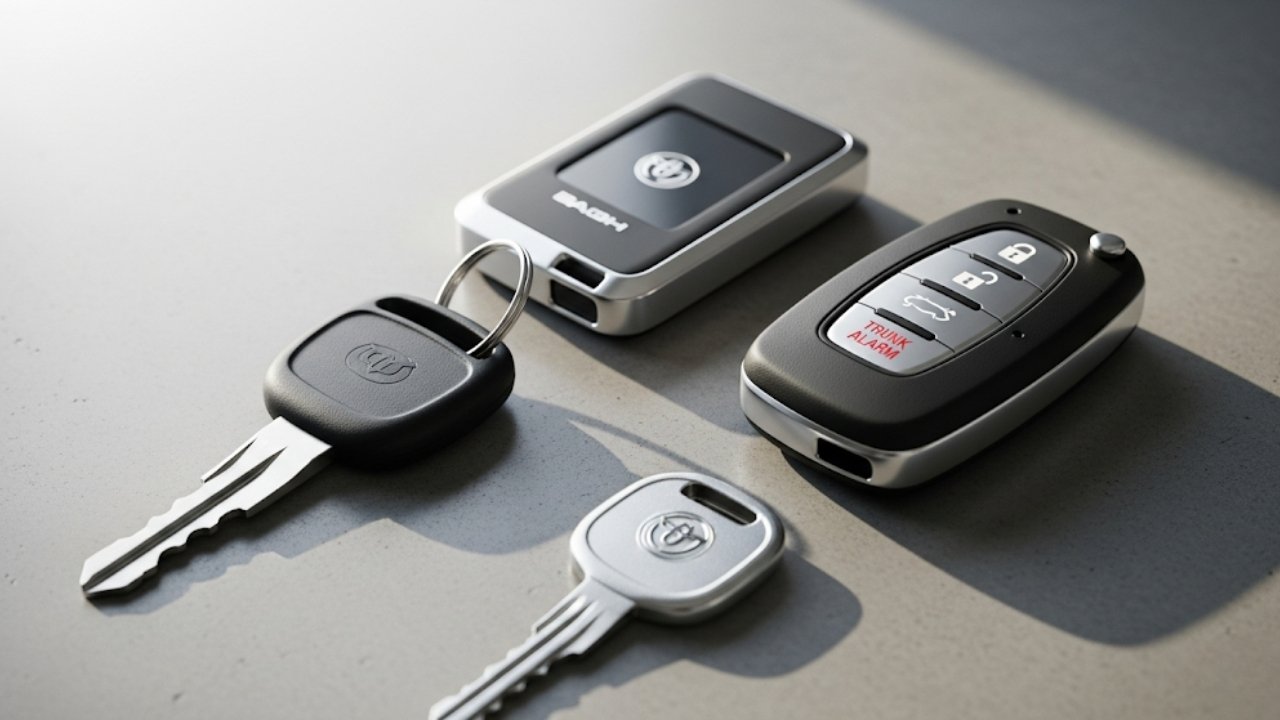
Here’s a quick breakdown:
| Type of Key | Description | Can You Copy Easily? |
|---|---|---|
| Traditional Metal Key | Old-school keys with no electronics. | Yes — Most locksmiths or kiosks. |
| Transponder Key | Has a chip that talks to your ignition. Introduced in the 1990s. | Yes — But needs programming. |
| Remote Head Key | Key + buttons to lock/unlock. | Yes — Requires dealer or locksmith. |
| Key Fob with Push Start | No actual key blade. Proximity-based entry and start. | Yes — Very specialized. |
| Smart Key or Proximity Fob | Fully digital, uses radio frequency. | Yes — Only select providers. |
Knowing your key type helps you avoid wasting time at places that can’t help. I once spent an hour at a hardware store only to hear, “Sorry, we can’t do fobs.”
Pro Tip: Check your key or owner’s manual — the key type is often labeled.
2. Where to Make a Copy of a Car Key Near You
Now, let’s answer the burning question — where to make a copy of a car key based on your key type, location, and urgency. I’ll break this down by the most common and convenient options.
A. Dealerships: Reliable but Expensive
If you drive a newer model car, your dealership probably offers key duplication services. They’re trustworthy, use OEM parts, and can program advanced keys. But there’s a catch — the cost.
-
Pros:
-
Guaranteed compatibility.
-
Advanced programming available.
-
OEM quality.
-
-
Cons:
-
Expensive (up to $500 for smart keys).
-
Can take days.
-
Requires proof of ownership.
-
Real Talk: When I lost my only key to a 2016 Honda Civic, the dealership quoted me $420 and a two-day wait. Ouch.
B. Auto Locksmiths: The Hidden Heroes
If you want the sweet spot between affordability and expertise, look no further than a certified auto locksmith. These folks are lifesavers. They usually carry programming tools in their vans, can come to your location, and are often 50% cheaper than dealerships.
-
Pros:
-
Mobile service available.
-
Great for transponder keys and remotes.
-
Faster than dealers.
-
-
Cons:
-
Not all locksmiths handle high-tech fobs.
-
Varying skill levels — do your research.
-
Helpful Tip: Ask if they’re licensed and insured. A good one will give you a price estimate over the phone.
C. Hardware Stores & Big Retailers: Good for Basic Keys
Places like Ace Hardware, Walmart, or Home Depot can duplicate traditional car keys (metal-only) and even some basic transponder keys.
-
Pros:
-
Quick and cheap (under $10 for metal keys).
-
Kiosk options like MinuteKey.
-
-
Cons:
-
No fob or smart key duplication.
-
Limited programming support.
-
Cautionary Tale: My friend once got a metal key copied at Walmart, but it wouldn’t start the car because his vehicle needed a chip key. Make sure you know your type!
D. Key Duplication Kiosks: Fast and Convenient
You’ve probably seen these self-serve machines in mall lobbies or supermarket entrances. Brands like KeyMe or MinuteKey can copy some car keys. If your key type is supported, you can get it in under 10 minutes.
-
Pros:
-
No waiting in line.
-
Affordable.
-
Stores digital backup of your key.
-
-
Cons:
-
Not all keys supported.
-
No advanced programming.
-
Pro Tip: Use the app to scan your key in advance — it’ll tell you if it’s supported.
E. Online Services: Modern Problems, Modern Solutions
Some companies let you order a duplicate key online. You provide your VIN (vehicle identification number), proof of ownership, and sometimes a photo of your existing key. They ship it to you with instructions.
-
Pros:
-
Convenient from home.
-
Ideal for spare keys.
-
Some offer remote programming help.
-
-
Cons:
-
Wait time (2–7 days).
-
Risk of incompatibility.
-
Popular options include Car Keys Express, eBay OEM sellers, and KeylessRide.
3. What You’ll Need Before Making a Copy
Before heading to any of the above places, make sure you have:
-
Your current key (unless it’s lost).
-
Vehicle registration.
-
Driver’s license.
-
VIN number (located on the dash or inside door frame).
-
Proof of ownership (if going to dealer or locksmith).
Without these, especially with high-tech keys, you may be denied service. This is for security — so someone can’t just walk in and copy your key.
4. How Much Does It Cost to Copy a Car Key? (Spoiler: It Varies)
Let’s be honest — price is a big factor. Here’s a rough breakdown to help you budget:
| Key Type | Estimated Cost (USD) | Where |
|---|---|---|
| Traditional Metal | $5 – $15 | Hardware store, locksmith |
| Transponder Key | $50 – $150 | Locksmith, dealership |
| Remote Head Key | $100 – $200 | Locksmith, dealership |
| Key Fob | $150 – $300 | Dealer, certified locksmith |
| Smart Key / Proximity | $200 – $500 | Dealer, specialized locksmith |
Money-Saving Hack: If you buy a blank fob online (Amazon, eBay) and bring it to a locksmith for programming, you can save 30–40%.
5. Why Having a Spare Car Key Is Worth Every Penny
Let me tell you a quick story.
Last winter, my friend Sarah went snowboarding upstate. After a long day, she reached into her pocket — no key. It was locked in her SUV, parked in freezing temperatures, with her phone inside. No spare. No help. After a 3-hour ordeal and a $280 emergency locksmith bill, she swore never again.
Moral of the story? Always have a spare. Even if it sits in a drawer forever, the peace of mind is priceless.
Benefits of Having a Spare:
-
Avoid getting stranded.
-
Save on emergency locksmith fees.
-
Reduce wear and tear on your main key.
-
Easily lend your car to family.
7. Common Mistakes to Avoid When Copying a Car Key
Copying a car key might seem simple, but it’s surprisingly easy to mess up — especially if you’re in a rush. Learning from others’ mistakes (like mine!) can save you time, money, and frustration. Here are some common errors people make when figuring out where to make a copy of a car key:
❌ Going to the Wrong Location
One of the biggest blunders is heading to a place that doesn’t support your key type. For example, hardware stores may copy metal keys but often can’t program transponder chips or key fobs. It’s like going to a shoemaker to fix a smartphone — not their area.
❌ Skipping Programming
Many modern car keys — especially transponder keys and fobs — need programming. Without it, your new key might unlock the door but won’t start the engine. Always ask if programming is included in the price.
❌ Buying Cheap Online Fobs Without Research
There are tons of key fobs online that look legit but are either incompatible or poorly manufactured. If you buy one, check reviews and confirm it matches your car’s year, make, and model exactly. Sometimes saving $20 upfront costs $200 in the long run.
❌ Not Bringing the Original Key
If you still have your original, bring it. Some places use the old key to clone the chip, ensuring perfect compatibility. Without it, you may need to provide VIN and proof of ownership, which takes more time.
8. How to Program a Car Key (If Needed)
You might be surprised to hear this, but some car keys can be programmed at home. This depends on your car’s make, model, and year. While more complex keys (like smart fobs) need dealership-grade tools, simpler transponder keys often have a manual programming sequence.
Basic Steps for DIY Programming (Transponder Key)
-
Insert original key into the ignition and turn to the “ON” position (don’t start engine).
-
Wait about 10 seconds, then remove the key.
-
Quickly insert the new key and turn to “ON” again.
-
Wait for another 10 seconds.
-
The security light on your dashboard should turn off — that’s your signal it worked!
⚠️ Always check your car’s manual or consult the manufacturer’s site. Not all vehicles allow this method.
Key Fobs and Proximity Keys
These usually require:
-
Special tools
-
Onboard computer access
-
Technical know-how
Unless you’re a tech wizard, your best bet is a locksmith or dealer for these.
9. Special Notes by Car Brands: Not All Keys Are Alike
Different automakers have different key technologies. Here’s what you should know about some popular brands when it comes to making a copy of a car key:
Toyota / Honda / Nissan
-
Most models post-1998 have transponder keys.
-
Affordable duplication via locksmiths.
-
Some models support DIY programming.
BMW / Mercedes-Benz / Audi
-
Use advanced encryption and coding.
-
Almost always require dealer-only services.
-
Duplicates can cost $300–$600+.
Ford / Chevrolet / Dodge
-
Many models have simple fob-keys.
-
Affordable locksmith solutions are available.
-
Great DIY programming support in some models.
Hyundai / Kia
-
Mixed bag: some use older keys, others use smart fobs.
-
Smart keys usually require dealer or specialist.
-
Programming may take longer for newer models.
If you’re unsure, Google your vehicle’s make, model, and year + key type. That usually gives helpful clues on where you can go.
10. Tips for Keeping Your Car Keys Safe (and Copies Working)
Getting a duplicate is only half the battle. Taking care of your car keys is just as important to avoid repeating the same stress.
Do’s
-
Store the spare in a safe but accessible spot.
-
Label your spare key clearly.
-
Keep one spare outside the car (at home or with a trusted person).
-
Use a key case or cover to protect from wear.
Don’ts
-
Never hide keys inside the car.
-
Don’t store them in wet or hot environments.
-
Avoid placing fobs near magnetic sources or electronic devices.
Remember, a key that doesn’t work in an emergency might as well not exist.
11. FAQs: All Your Questions Answered
Q1. Can I copy a car key without the original?
Yes, but only certain providers can do this — typically dealerships or certified locksmiths. You’ll need your VIN number, proof of ownership, and possibly a government ID.
Q2. How long does it take to make a copy of a car key?
-
Traditional keys: 5–10 minutes.
-
Transponder keys: 20–30 minutes.
-
Smart keys/fobs: Up to an hour, depending on complexity.
Q3. Is it legal to copy someone else’s car key?
No. Car keys are treated as security devices. Most professionals will require proof of ownership.
Q4. Can I duplicate a push-start smart key?
Yes, but it requires special tools. Only a dealership or advanced locksmith can do this accurately.
Q5. Does insurance cover car key duplication?
Some comprehensive car insurance plans include key replacement or duplication — check with your provider.
Q6. What happens if the copy doesn’t work?
Most providers will reprogram or replace the key for free, especially if they provided both the key and programming.
Q7. Can I get a car key copied at Walmart or Home Depot?
Only basic metal or limited chip keys. Fobs and smart keys typically need professional help.
Q8. Should I buy a key online and have it programmed locally?
Yes, but verify compatibility first. It’s a great way to save money if your locksmith allows it.
12. Conclusion: Secure Peace of Mind with a Spare Key
At the end of the day, having a spare car key is like keeping an umbrella in your trunk — you hope you never need it, but you’re glad it’s there when life rains on your plans.
Finding where to make a copy of a car key might feel overwhelming at first. Between choosing the right provider, understanding your key type, and navigating costs, it’s easy to feel stuck. But now you know the lay of the land — dealerships for full-service support, locksmiths for budget-friendly speed, kiosks for quick jobs, and online platforms for convenience.
So go ahead — get that spare. Tuck it in a safe drawer. Sleep a little easier knowing you’re prepared for whatever your car (or your forgetful brain) throws at you next.

